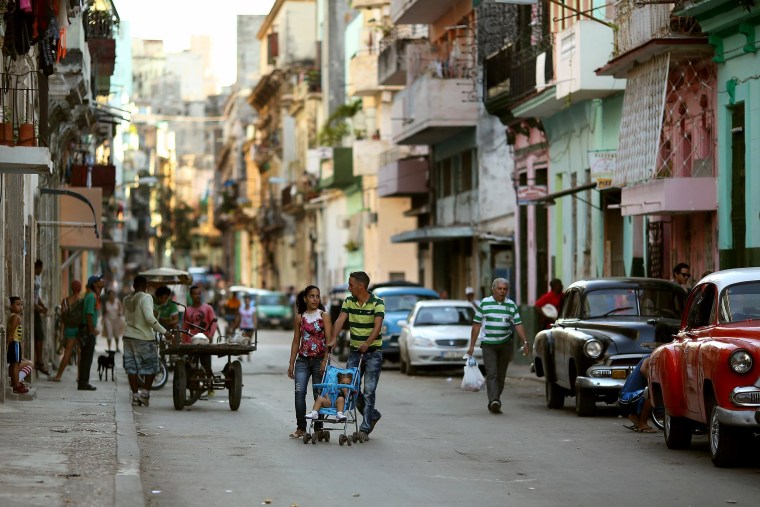A former Cabinet secretary under George W. Bush sees something he likes in President Barack Obama's change in policies on Cuba:
"One of the things I like the about President Obama's reforms, his approach, is the idea of supporting Cuban entrepreneurs," Carlos Gutierrez, who served as Department of Commerce secretary and is Cuban American, said Tuesday.
"If I had my choice of what business would I open up in Cuba - not that I'm planning to invest in Cuba - how about a little home repair store? Or a shop where businesses can buy tools? A wholesaler system where you have a series of warehouses around the country where if you own a restaurant that's where you order you napkins ... That's the basic kind of infrastructure that we need," Gutierrez said.
Gutierrez was a keynote speaker at a forum on Cuba's "economic reintegration" held by the Atlantic Council's Adrienne Arsht Latin America Center, which is supportive of the decision to open relations with Cuba.
On this issue, Gutierrez has stood apart from other high-profile Cuban Americans in government such as Sens. Marco Rubio of Florida, Ted Cruz of Texas and Bob Menendez of New Jersey as well as several Cuban American members of the House. Although he's been cautious about his support, Gutierrez has publicly said - as he did recently in a New York Times opinion piece - that it's time to end the more than half century-old back turning on Cuba.
There are more than half a million small businesses since Cuba began to license private sector small business activity, according to Luis Miranda, a political consultant whose clients include groups supportive of the administration's Cuba reforms. But the current trade embargo and travel ban keep the types of businesses that can flourish in check. So, while Airbnb offerings of homes for vacationing tourists have grown to 2,000 or more beds and breakfasts, American travel to Cuba and where they stay continue to be restricted.
Related: Airbnb Shows How Companies Can Crack the Cuban Market
Obama's proposed changes in Cuba policy include allowing small businesses in Cuba to sell goods to the U.S., which is expected to be more of a motivator for private business development of goods the U.S. might import than starting a flow of Cuban-made goods to the U.S.
On July 20th, the U.S. is expected to open its embassy in Havana.
Opponents to Obama's effort to move to a more open relationship with Cuba cite the country's human rights record and said the U.S. has failed to get concessions from Cuba in return for the easing of restrictions on the country. They have accused Cuban President Raúl Castro of maintaining the oppressive regime of his brother Fidel Castro and insisted the government must address legal claims of families on lands and property seized by the Castro governments.
As part of its discussion, Atlantic Council issued a report encouraging support for Cuba to regain access to international financial institutions such as the World Bank, which it left in 1960; the International Monetary Fund, which it left in 1964t and to gain access for the first time to the Inter-American Development Bank, which opened in 1969.
The institutions, the council said in its report, can help Cuba attract investment, improve its infrastructure and lower its operating costs. The institutions also could lend research and expertise to Cuba in reforming its state-owned companies and merging the two currencies in use in Cuba.
"Economic development requires capital, investment capital not subsidies," Gutierrez said.
For that development to happen, Cuba will have to accept the need for capital investment and that investors require a return on money they put in, he said.
"That's at the core of what needs to be addressed in the Cuban economy and unless that is embraced then it's going be tough," he said. Gutierrez said returns on investment have been seen in the agriculture sector, which saw reform in 2007. A review of 25 different crops shows production increases in all of them in 2012 and 2013 over 2006, he said.
But U.S. law prohibits the U.S. from voting for Cuban membership in the international financial institutions and withholds money from any institution that grants Cuba assistance. The council spelled out ways to get around this in its report, including the president declaring the U.S. does not oppose Cuban membership in the institutions, but such moves could face challenges.

